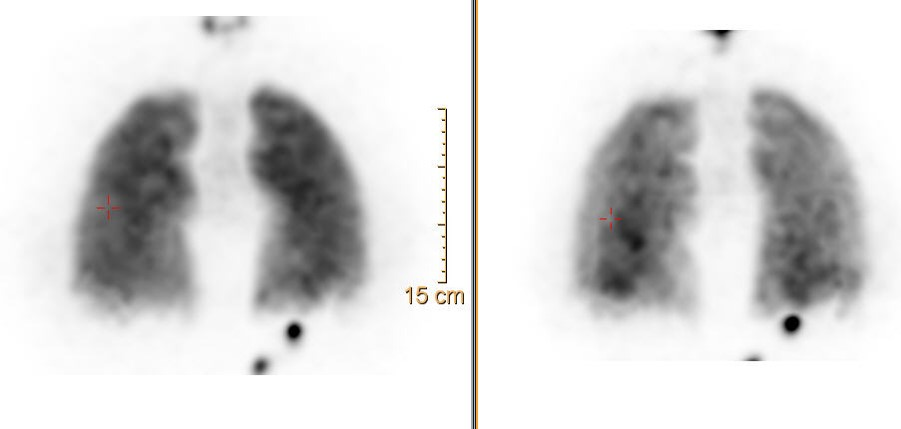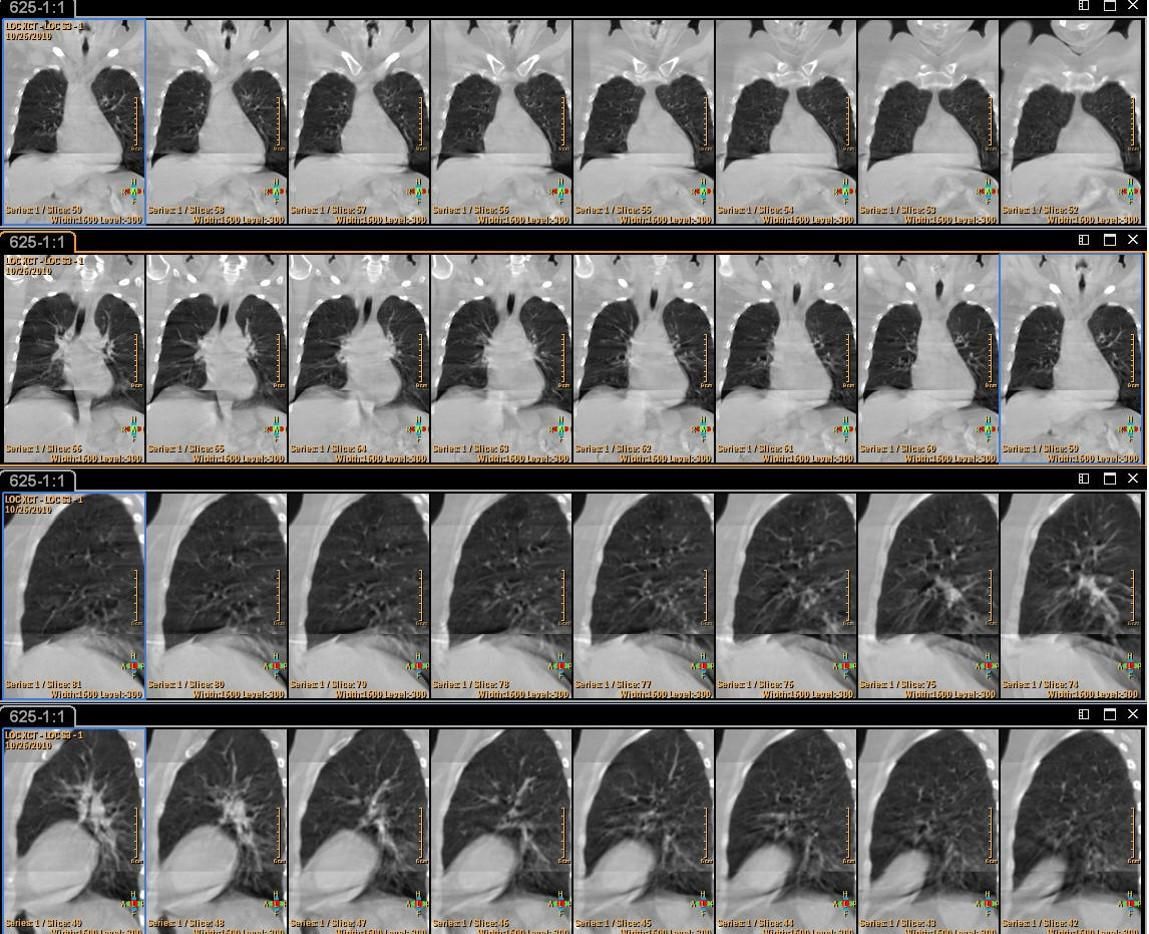lung scan

What is a Lung Scan?
A lung scan, also called a pulmonary scan or lung scintigraphy, is a medical imaging test used to show if there are any clots in the blood vessels in the lungs. It is a nuclear medicine test that typically involves two main types:
- Ventilation Scan: The patient inhales a small amount of radioactive gas, and images are taken to see how air moves through the lungs.
- Perfusion Scan: A small amount of radioactive material is injected into a vein to observe lung blood flow.
Who is Suitable for a Lung Scan?
A lung scan is recommended for individuals with lung or heart-related symptoms or conditions affecting lung function. It is typically suggested for:
- People with Symptoms of Pulmonary Embolism
- Sudden shortness of breath
- Chest pain (especially when breathing deeply)
- Rapid heart rate
- Coughing up blood
- Patients with Chronic Lung Conditions
- Chronic obstructive pulmonary disease (COPD)
- Asthma
- Interstitial lung disease
- Pulmonary hypertension
- Preoperative Assessment for Lung Surgery
- To evaluate lung function before lung cancer surgery or lung transplant
- People with Suspected Lung Blood Flow Issues
- To check how well blood is circulating in the lungs
- Individuals Exposed to Environmental or Occupational Hazards
- Smokers or people exposed to high-risk environments (e.g., coal miners, asbestos workers)
Benefits of a Lung Scan
A lung scan offers several advantages in diagnosing and managing lung conditions:
- Non-invasive and Quick
- Highly Effective in Detecting Pulmonary Embolism
- Guides Treatment Planning
- Lower Radiation Exposure than CT Scans
- Evaluates Lung Function Before and After Treatment
Conditions Diagnosed by a lung scan
A lung scan is used to detect and assess various lung conditions, including:
- Pulmonary Embolism (PE)
- Chronic Obstructive Pulmonary Disease (COPD)
- Lung Cancer & Preoperative Assessment
- Pulmonary Hypertension
- Interstitial Lung Disease (ILD)
- Lung Infections & Inflammatory Conditions
- Congenital Lung Abnormalities
What Further Information Can a Lung Scan Show?
A lung scan provides detailed information about lung function and blood flow. Depending on the type of scan performed, it can reveal:
- Airflow Problems (Ventilation Scan)
- Shows areas where air is not moving properly through the lungs.
- Useful in diagnosing conditions like asthma, chronic obstructive pulmonary disease (COPD), or lung infections.
- Blood Flow Issues (Perfusion Scan)
- Identifies blockages or reduced blood supply in the lungs, indicating a pulmonary embolism (PE).
- Detects pulmonary hypertension by showing how well blood circulates in the lung’s arteries.
- Lung Function & Capacity
- Helps assess how much of the lung is functioning before lung surgery or transplant.
- Useful in determining if a patient can tolerate lung cancer surgery or radiation therapy.
- Lung Scarring or Damage
- Reveals areas of lung fibrosis (scarring) from infections, autoimmune diseases, or interstitial lung disease (ILD).
- Identifies chronic damage caused by conditions such as tuberculosis (TB) or environmental exposure.
Preparation for a Lung Scan
What to Bring
- Medicare or private health insurance details (if applicable).
- Referral letter from the doctor or specialist.
- List of current medications (including blood thinners or inhalers).
- Previous lung scans or imaging reports, if available.
What to Wear
- Wear loose, comfortable clothing without metal objects (zippers, underwire bras, or jewellery).
Dietary Restrictions
- No
Medication Instructions
- Inform the doctor about any medications, including blood thinners or asthma inhalers.
- Some medications may need to be paused temporarily before the test.
Allergy and Pregnancy Considerations
- Inform the doctor if you are pregnant or breastfeeding. While the radiation exposure is minimal , the test can be performed with half normal dose of radiation.
Duration of the Test
- The procedure typically takes 30 to 60 minutes.
What about the injection?
There are two parts to the scan. Before the injection, you are asked to breathe a radioactive gas through a mask for about 5 minutes. This outlines the breathing tubes in the lungs. Then, there is a small injection into a vein in your arm. This outlines the blood vessels in your lungs. There are no side effects; you will not feel tired or dizzy, and you can drive a car.
What about the pictures?
After you breathe the gas, a picture of your lungs is taken, which takes about 20 minutes. Then, you receive the injection, and a further set of pictures is taken, which also takes about 20 minutes.
What to Expect After a Lung Scan?
Once the lung scan is complete, patients can resume normal activities immediately.
Is it painful and are there any side effects?
No. There are no side effects or reactions from the injection. The injection does NOT contain iodine and is, therefore, safe in people allergic to radiological contrast injections. Although you must remain still during the scan, the procedure is painless.
Can I take my normal medication?
Yes. Take all of your normal medications.
Can I eat and drink on the day of my test?
Yes, you do not need to fast before this test. However, drinking plenty of fluid will help the bone tracer clear from your system more quickly.
When to Seek Medical Help
- If you experience shortness of breath, dizziness, or severe chest pain after the scan, seek medical attention immediately.
- Rarely, some people may have an allergic reaction to the tracer, requiring medical support.
Follow-Up Appointments
- The doctor will review the scan results and discuss any abnormalities detected.
- If a pulmonary embolism or lung disease is found, further tests such as a CT scan, blood tests, or echocardiogram may be recommended.
When do I get the results?
Results will be available the following day after 2pm.

Lung Scan Risks
A lung scan is generally considered a low-risk procedure. However, as with any medical imaging test, some risks exist.
- Radiation Exposure: A lung scan uses a small dose of radioactive material, which poses minimal risk to most people.
- Allergic Reactions: Rarely, some people may experience an allergic reaction to the radioactive tracer, causing:
- Skin rash
- Itching
- Mild nausea
- Discomfort from Injection or Inhalation
- Short-Term Radiation Precautions
What if a Lung Scan is Delayed?
Delaying a lung scan can lead to missed or late diagnosis of critical lung conditions, which may result in serious complications.
If you have sudden chest pain, shortness of breath, dizziness, or unexplained fatigue, do not delay a lung scan—seek urgent medical advice.
Lung Scan Costs
- Medicare Coverage: Bulk billed. No out-of-pocket cost.




